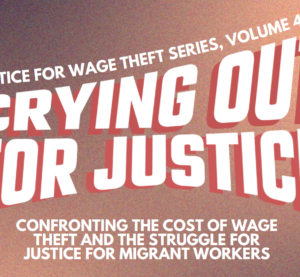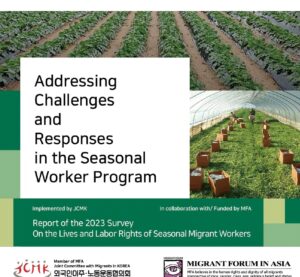Human Rights Council concludes seventeenth session
— June 17, 2011From the HR Council Media
17 June 2011
(Excerpt: mention on migrants issues. Read the full media brief here)
The Human Rights Council closed its seventeenth regular session this afternoon, adopting 29 texts on a wide range of issues, including on the follow-up to the report of the Independent International Fact-Finding Mission on the incident of the humanitarian flotilla and the visit of the High Commissioner for Human Rights to Yemen; on human rights in the context of peaceful protests, on eliminating all forms of violence against women, on the right to education, on the human rights of migrants, on migrants and asylum seekers fleeing from events in North Africa, on extreme poverty and human rights, on the right to health, on human rights and transnational corporations and other business enterprises, on extrajudicial, summary or arbitrary executions, and on the promotion of the enjoyment of the cultural rights of everyone and respect for cultural diversity.
The Council extended the mandates of the Special Rapporteur on trafficking in persons, especially women and children, the Special Rapporteur on the independence of judges and lawyers, the Special Rapporteur on the right to education, the Special Rapporteur on extrajudicial, summary or arbitrary executions, the Special Rapporteur on the human rights of migrants, the Special Rapporteur on extreme poverty and human rights, the Independent Expert on human rights and international solidarity and the Independent Expert on the situation of human rights in Somalia.
The Council appointed Francois Crépeau as Special Rapporteur on the human rights of migrants, Rita Izsak as Independent Expert on minority issues, Virginia Dandan as Independent Expert on human rights and international solidarity, Ben Emmerson as Special Rapporteur on the promotion and protection of human rights while countering terrorism and Ahmed Shaheed as Special Rapporteur on the situation of human rights in the Islamic Republic of Iran. The Council also appointed Anton Ferrel Katz, Patricia Arias and Elzbieta Karska as members of the Working Group on the use of mercenaries as a means of impeding the exercise of peoples to self-determination. Over the course of its session, the Council heard a number of high-profile reports and held interactive dialogues with the Special Procedures presenting them, including the Special Rapporteur on extrajudicial, summary or arbitrary executions; the Special Rapporteur on the independence of judges and lawyers; the Special Rapporteur on the human rights of migrants; the Special Rapporteur on the right to education; the Special Rapporteur on the right of everyone to the enjoyment of the highest attainable standard of physical and mental health; the Special Rapporteur on trafficking in persons , especially in women and children; the Special Rapporteur on the promotion and protection of the right to freedom of opinion and expression; the Special Rapporteur on violence against women, its causes and consequences; the Special Rapporteur on Contemporary forms of racism, racial discrimination, xenophobia and related intolerance; the Independent Expert in the field of cultural rights; the Independent Expert on the effects of foreign debt and other related international financial obligations of States on the full enjoyment of human rights, particularly economic, social and cultural rights; the Independent Expert on the question of human rights and extreme poverty; and the Special Representative of the Secretary-General on the issue of human rights and transnational corporations and other business enterprises.On Monday, 30 May, the High Commissioner for Human Rights, Navi Pillay, addressed the Council to present the report of the work of her Office, in which she noted the rise in demand for fundamental human rights across North Africa and the Middle East and cited it as a result of the decades of denial of civil, cultural, economic, political and social rights, as well as the right to development. Promising first steps had been taken in Tunisia, Egypt, Algeria, Morocco and Jordan toward improving access to fundamental human rights, but legitimate claims were being met with repression and extreme violence by governments in Libya and Syria. The High Commissioner noted that those suspected of committing serious crimes could not escape justice, as was shown with the arrests of Ratko Mladic in Serbia and Bernard Munyagishari in the Democratic Republic of the Congo. Noting the continuing vulnerability of migrants, the High Commissioner expressed concern over the rhetoric of recent months depicting migrants as a singular problem best offloaded elsewhere. It was time for all countries facing these challenges to show effective support in full respect of international obligations.
On the human rights of migrants, the Council extended for a period of three years the mandate of the Special Rapporteur on the human rights of migrants and requested the Secretary-General to give the Special Rapporteur all necessary human and financial assistance for the fulfillment of his or her mandate.
On migrants and asylum seekers fleeing from events in North Africa, the Council requested the United Nations High Commissioner for Human Rights to pay particular attention to the situation of migrants and asylum-seekers fleeing North Africa and to report to the Human Rights Council at its eighteenth session and to provide updates thereon.



